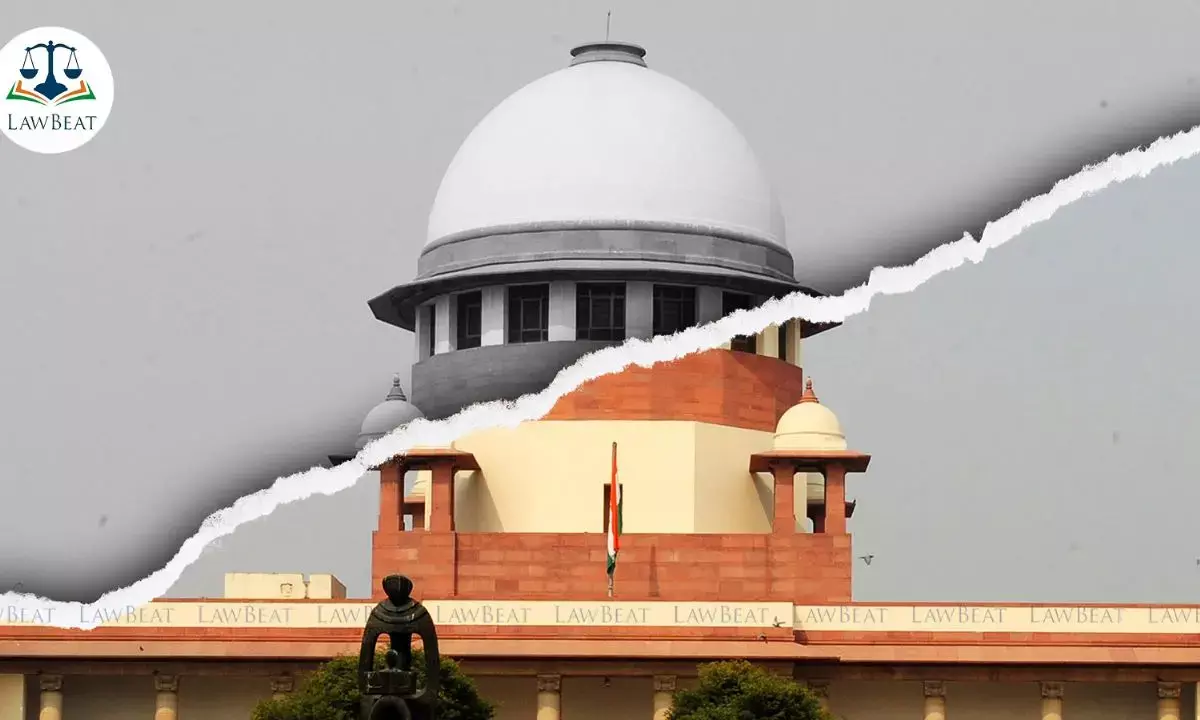SC Clarifies Filing Another SLP After Dismissal Violates Rule of Law

Supreme Court rules that filing a second SLP against the same High Court order after dismissal of an earlier petition is abuse of process and violates finality in litigation
The Supreme Court on September 1, 2025 held that filing a Special Leave Petition against a High Court order after an earlier petition under Article 136 of the Constitution challenging the same order has already been dismissed amounts to abuse of the process of court.
A bench of Justices Manmohan and N V Anjaria said such re-litigation is impermissible as it undermines the principle of finality in litigation which is one of the foundation pillars of the rule of law. The Court explained that once an SLP against a particular High Court order has been dismissed, a second attempt through another SLP would effectively amount to sitting in appeal over the earlier dismissal.
Explaining the rationale, the bench observed that entertaining such a petition would reopen an issue that has already been settled by the Court in exercise of its discretionary jurisdiction. The Court stated, “This court is of the view that entertaining the present SLP qua the order dated 30th January 2014 would amount to sitting in appeal over the order dated 1st July 2014 passed by a Co-ordinate bench of this court.”
The case arose out of a challenge to orders dated January 30, 2014 and February 18, 2025 passed by the Karnataka High Court, Dharwad Bench in review proceedings. The petitioner had earlier filed an SLP against the January 2014 order, which was dismissed on July 1, 2014 by a non-speaking order that recorded, “No ground for interference is made out in exercise of our jurisdiction under Article 136 of the Constitution of India. The special leave petition is dismissed.”
When the matter came up again, counsel for the petitioner argued that the issue of filing an SLP after an earlier one had been dismissed without liberty was pending consideration before a larger bench in S Narahari and Ors v S R Kumar and Ors (2023). It was urged that therefore the present case should also be referred or tagged with that matter.
The bench clarified that the reliance on S Narahari was misplaced. The earlier SLP in S Narahari had been dismissed as withdrawn, not dismissed on merits, and the legal consequences were different. The Court explained that not every reference to a larger bench automatically permits re-litigation. It added that even when a reference is pending, courts are bound by the law declared under Article 141 of the Constitution. The bench said, “In any event just because the issue has been referred to a larger bench does not mean that the court in the interregnum will not abide by the binding law in terms of Article 141 of the Constitution.”
Counsel for the petitioner had also argued that the High Court erred in dismissing the review petition only because the Supreme Court had already declined to interfere with the original judgment, contending that review was permissible under Section 114 of the Code of Civil Procedure, 1908. Reliance was placed on Kunhayammed v State of Kerala (2000) and Khoday Distilleries v Sri Mahadeshwara Sahakara Sakkare Karkhane Ltd (2019).
The bench explained that these precedents only establish that a review petition before the High Court is maintainable after dismissal of an SLP by a non-speaking order. They do not give the petitioner a right to file a second SLP against the same High Court judgment. The Court said, “The judgment in Kunhayammed and Khoday Distilleries also nowhere stated that the petitioner is entitled to a ‘second bite at the cherry’ by filing a subsequent SLP challenging the order of the High Court against which an SLP has already been dismissed.”
The Court further observed that Order XLVII Rule 7 of the CPC bars any appeal from an order dismissing a review petition. It noted that the attempt in the present case was to circumvent this bar by filing a second SLP against the main judgment of January 30, 2014, which had already attained finality after the earlier SLP was dismissed. The bench remarked, “To circumvent this provision of law, another SLP has been filed challenging the main judgment and order dated 30th January, 2014 against which SLP has already been dismissed.”
The Court also referred to its earlier judgment in T K David v Kuruppampady Service Cooperative Bank Ltd (2020), where a three-judge bench had held that once an SLP against the main High Court judgment has been dismissed, the judgment becomes final and cannot be indirectly reopened by challenging the order rejecting review.
In this context the bench said that the facts of the present case were not comparable to S Narahari. Since the petitioner’s first SLP had been dismissed, the High Court’s judgment of January 30, 2014 had become final. The Court concluded that the present attempt was nothing but re-litigation. It said, “This court is of the opinion that the present SLP against main order dated 30th January, 2014 is an abuse of process of court as it amounts to re-litigation and to entertain the present SLP would amount to challenging one of the foundation pillars of Rule of law namely finality in litigation.”
Accordingly, the petition was dismissed.
Case Title: Vasantalata Kom Vimalanand Mirjankar Rep By GPA Holder Vs Deepa Mavinkurve & Ors
Judgment Date: September 1, 2025
Bench: Justices Manmohan and N V Anjaria
